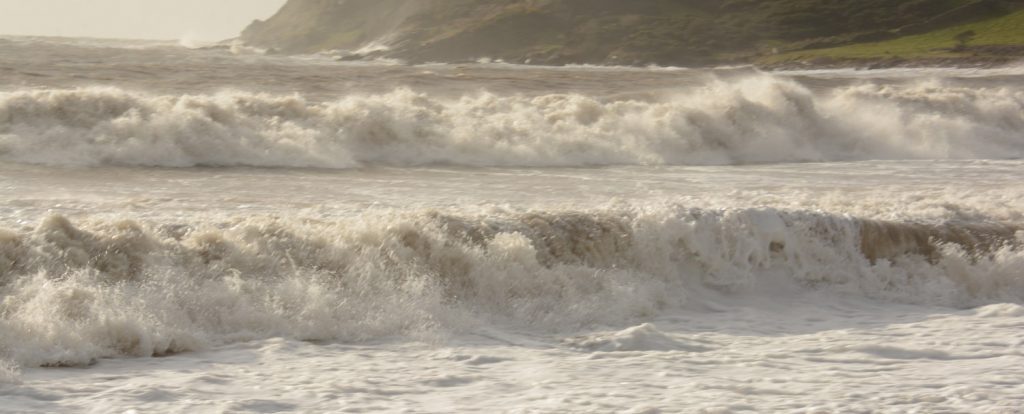A new Understanding Scotland poll has found widespread concern at climate change and a clear consensus that it constitutes a global emergency, with 82% of those surveyed saying so, compared to only 12% who disagree.
The findings also challenge preconceptions that environmental concerns are the preserve of the young and the middle classes, with broad concern seen across demographic groups. By a ratio of 3:1, people believe that climate change is an issue that worries everybody regardless of background, with less affluent respondents in fact less likely to say that it primarily motivates more privileged people.
When it comes to tackling climate change, 58% of people believe that government has the greatest responsibility for doing so, followed by individuals (18%) and business (12%). Young people, however, appear to see this as a systemic issue rather than one of individual responsibility: those aged 16-34 were twice as likely as any other age bracket to hold businesses singularly responsible, with one in five saying they had the greatest responsibility.
The polling also finds that half (49%) of all people believe that tackling climate change need not hamper economic productivity, compared to a quarter who said it was likely to have a detrimental effect. People in the North East of Scotland were more sceptical, with a third (35%) suggesting it would harm the economy, though a greater proportion (41%) disagreed.
Reflecting on the results, Mark Diffley, director of Diffley Partnership who conducted the survey, said: “These findings point to a widespread concern at the scale of the climate emergency, regardless of age or background. There is a clear onus on national governments to act, with a widespread perception that this could provide an economic boost at the same time as tackling this formidable challenge.”
The polling also found a clear role for education to tackle climate change. Two thirds of respondents believe that a designated educational institution would help to tackle climate change, and over half (55%) would like colleges and universities to include climate education in all their offerings. 45% per cent of those expressing an opinion also said that school curricula are not currently doing enough to educate young people on climate change, compared to 24% saying that they are.
Wayne Powell, Principal of Scotland’s Rural College (SRUC), who sponsored the survey, said: “This initial research shows that there is a clear need for educational institutions to be leading the way in the fight against climate change. SRUC is uniquely placed at the heart of the debate, delivering independent evidence-based research, skills and innovation to help deliver and protect an economy driven by the natural environment.”
The polling, part of the new Understanding Scotland survey from Diffley Partnership and Charlotte Street Partners, gathers insights from over 2,000 members of the Scottish adult population. The full report, exploring environmental attitudes and behaviours in Scotland, can be found here.
Key findings:
- The Scottish public see climate change as an unambiguous global emergency
There is a strong degree of consensus among the Scottish population that climate change constitutes a global emergency, with four in five people saying so. A clear majority believed this to be the case regardless of sex, age or social grade
- The public do not see climate change as a middle class concern/a preserve of the middle classes.
By a ratio of 3:1 people believe that climate change is an issue that worries everybody, regardless of background. In fact, more affluent respondents appear to have internalised this idea, with a greater proportion of ABC1 respondents saying it primarily motivates more privileged individuals (24%) than C2DE respondents (19%).
- People hold government most responsible for tackling climate change
58% of people overall hold government singularly most responsible for tackling climate change
- This was followed by individuals and businesses
There is, in the public eye, a clear responsibility on us to tackle climate change as individuals, with a fifth (18%) of people saying that individuals have prime responsibility. This was followed by businesses (12%) and international bodies (10%).
- Young people, however, are outliers
While there was a high degree of consistency across other age brackets in apportioning responsibility, 16-34 year olds were markedly less likely than others to hold individuals responsible (12%), and almost twice as likely to hold businesses most responsible (20%)
- Most people believe that climate action would boost the economy
Overall, half of respondents disagreed with the suggestion that tackling climate change would imperil economic productivity, with only a quarter suggesting it would be harmful. Female and younger respondents were especially likely to think that it would benefit the economy.
- But there is considerable variation between geographical areas
While a plurality of people in all areas said it would be economically beneficial than damaging, the margin was much tighter in the North East of Scotland, where 35% said that it would harm the economy.
- And most people do not know much about the ‘green economy’
- 50% of people know ‘a little’ about what the term means, while 36% know nothing or have never heard the term. Reported familiarity with the term was higher among older and more affluent respondents.
- In the minds of the public, there is a clear role for education in tackling climate change.
- Two thirds of the Scottish public believe a designated educational institution would support Scotland to tackle climate change, and 55% said that all higher and further education courses should include climate change education.
- However, there is still more to do in this vein
- Less than a quarter (24%) of people think that enough is currently being done in schools to educate young people about climate change, with 34% disagreeing.
Please click here for the full report.





